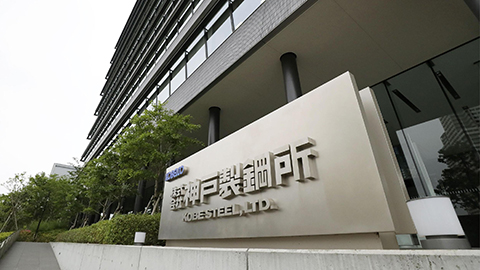Japanese manufacturing has fallen from the "altar" to the "quagmire" after decades of counterfeiting.
CCTV News:Precision manufacturing is the main pillar of Japanese manufacturing, and it is regarded as Japan’s "national business card". However, last year, after Kobe Steel Works was exposed to fraud scandals and continued to ferment, more and more leading Japanese manufacturing enterprises encountered the "quality gate", and Japanese manufacturing was falling from the "altar" to the "quagmire".
"The problem of making Japanese manufacturers lose their sense of trust has developed into a criminal case." Kyodo News reported on the 5th that the Special Search Department and the Metropolitan Police Department of the Tokyo District Prosecutor’s Office of Japan conducted a home invasion search on five locations in Tokyo and Kobe office buildings of Kobe Steel Works and three factories on the grounds of suspected violation of the Anti-Unfair Competition Law that day. The report stressed that although the company voluntarily submitted some information, considering its decades-long data fraud, it decided to "carry out compulsory search".

Established in 1905, Kobe Steel Works is the third largest steel producer in Japan, the top supplier of aluminum products and copper products in Japan and one of the top 500 enterprises in the world. Japanese Prime Minister Shinzo Abe worked in Kobe Steel Works before he entered the political arena. He also revisited his hometown twice as prime minister and wrote an inscription praising his technology and quality.

However, in October 2017, many factories in Kobe Steel Works were exposed to long-term tampering with the factory inspection data such as the strength and size of aluminum and copper products, and then it was exposed that the parameters of iron powder products were falsified, which led to the questioning of its entire line of products.
The Chinese official website of Kobe Steel Works shows that "the wire rod for automobile valve springs is used by one in every two cars in the world", "the aluminum sheet for automobiles accounts for 50% of the Japanese market" and "the aluminum profile for railway vehicles accounts for the highest share of the Japanese market".
Therefore, the "suspected fraud" of Kobe Steel Works can be described as "pulling the whole body", and about 200 Japanese companies have been affected. Toyota, Nissan, Honda, Mitsubishi, Subaru, Mazda, Suzuki and other Japanese car companies have confirmed the use of the problem parts, and the affected parts are mainly engine covers and doors. The Shinkansen train of Donghai Railway Company and the first Japanese-made jet regional aircraft MRJ under development were all found to have used aluminum products that did not meet Japanese industrial specifications.